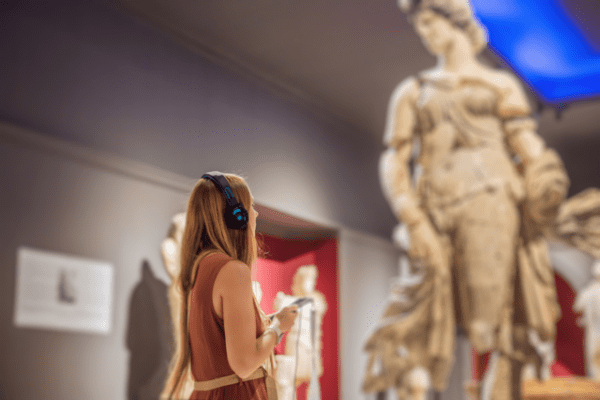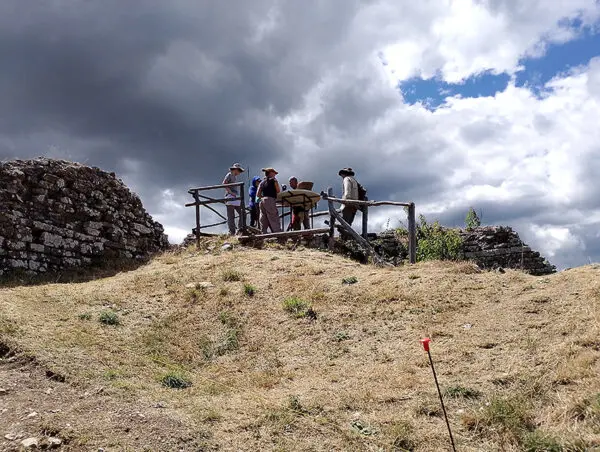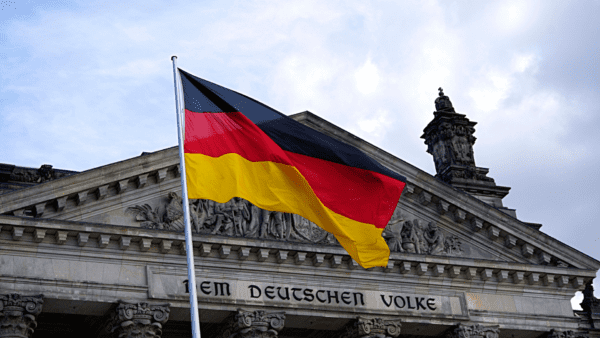
Oslo, Norway
The Vikings and Medieval Norway
When:
29 June - 24 July 2026
Credits:
10 EC
Read more
History
When:
19 July - 01 August 2020
School:
University of Cambridge International Summer Programmes
Institution:
University of Cambridge
City:
Country:
Language:
English
Credits:
0 EC

The History Programme gives you the chance to study in detail specific historical figures, periods and events. Eminent historians offer courses covering a wide range of themes in British, European and global history.
The academic programme
• Four courses (two per week)
• Series of plenary lectures: Reputations
• Evening talks
• Contact hours: up to 50.5 hours
Programme description
Courses are led by members of the University's Faculty of History and visiting academics. You may wish to attend courses which most obviously complement one another or you may make a selection which covers the broadest historical period possible. The programme attracts current undergraduates and graduate students, and teachers of history, or those who have been engaged in historical study at some stage.
"The History Summer Programme provides an excellent way to explore the human past in depth with a range of leading historians." Dr David Smith, Programme Director, History Summer Programme
Courses
Select one morning and one afternoon course per week, each has five sessions, the maximum class size is 25 students. Teaching takes place on weekdays. You can opt in to write one 2,000-3,000 word essay per course for evaluation. The following have been invited to teach courses:
Week 1 (19 - 25 July 2020)
Group La: 11.15am - 12.45pm
La1 - Oliver Cromwell and the English Revolution Dr David Smith
La2 - Winston Churchill: the greatest Briton? Professor Mark Goldie
La3 - Europe: the age of empires, 1848-1914 Dr Seán Lang
La4 - From famine to revolution: Ireland 1845-1923 Dr Niamh Gallagher
La5 - Russia after Stalin: from Krushchev to Putin Dr Jonathan Davis
La6 - Advent of the Tudors Dr Jessica Sharkey
Group Ma: 2.00pm - 3.30pm
Ma1 - English politics and culture in the 18th century Dr Matthew Neal
Ma2 - The French Revolution and its causes, 1685-1793 Dr Felix Waldmann
Ma3 - The great Prime Ministers (Double course: to be taken with Mb3 in week 2) Dr Seán Lang
Ma4 - The Ottoman Empire, 1453-1922 Dr Michael Talbot
Ma5 - Cold War flashpoints Dr Jonathan Davis
Ma6 - Bloody Mary: reassessing England's first queen Dr Jessica Sharkey
Week 2 (26 July - 1 August 2020)
Group Lb: 11.15am - 12.45pm
Lb1 - John Milton and the English Revolution Dr David Smith
Lb2 - On the roof of the world: the making of modern Central Asia, 1865-1953 Dr Jennifer Keating
Lb3 - Europe: the fall of empires, 1914-97 Dr Seán Lang
Lb4 - ‘Greatness’ and the US Presidency Mr Nicolas Kinloch
Lb5 - Treason in early modern England, 1500-1700 Dr Mark Nicholls
Lb6 - From removal to reservations: Native American history, 1830-80 Dr Ian Chambers
Group Mb: 2.00pm - 3.30pm
Mb1 - The English Reformation: politics and personalities Dr Harriet Lyon
Mb2 - Revolutionary Russia Dr Jennifer Keating
Mb3 - The great Prime Ministers (Double course: to be taken with Ma3 in week 1) Dr Seán Lang
Mb4 - The making of the modern Middle East, 1914-67 Dr Michael Talbot
Mb5 - From rotten boroughs to the ballot box: Britain’s road to democracy in the 19th century Dr Graham McCann
Mb6 - The Spanish Civil War, 1936-39 Dr Daniel Carter
Lecture series
The lecturers will examine a range of issues related to the theme of War and Peace in history. Their subjects will be taken from a wide variety of different periods of time and parts of the world. Particular attention will be paid to the relationship between war and peace, and the extent to which they represented attempts to achieve similar ends by different means. The degree to which the nature of war and peace has changed over time will also form a central theme of the lectures.
Lectures are planned to include:
Professor John Morrill, The benefits of war in early modern Britain and Ireland
Dr Jonathan Davis, 1989: why the Wall fell
Dr Sean Lang and Nicolas Kinloch, The Treaty of Versailles 100 years on: has it been misjudged?
Dr David Gilks, Art plunder and restitution during the Revolutionary Napoleonic Wars, 1792-1815
Allen Packwood, How Churchill waged war
Dr David Smith
We welcome those coming from any background with a real commitment to the subject. Many courses offer introductions to new subject areas, others are a little more specialised. No prior knowledge of the history of any particular period or reign is expected, but there is usually required and/or supplementary reading which should be undertaken before you arrive in Cambridge.
When:
19 July - 01 August 2020
School:
University of Cambridge International Summer Programmes
Institution:
University of Cambridge
Language:
English
Credits:
0 EC

Oslo, Norway
When:
29 June - 24 July 2026
Credits:
10 EC
Read more

Grosseto, Italy
When:
13 February - 27 February 2026
Credits:
3 EC
Read more

Berlin, Germany
When:
05 January - 23 January 2026
Credits:
6 EC
Read more